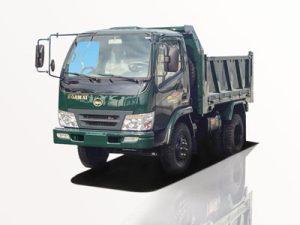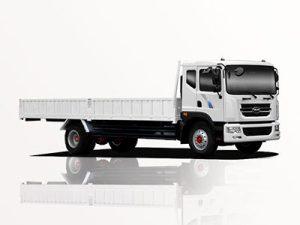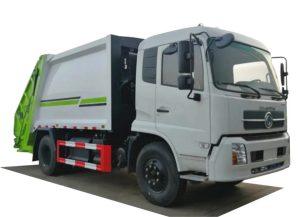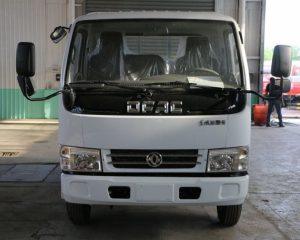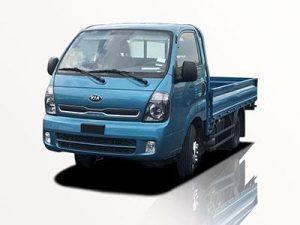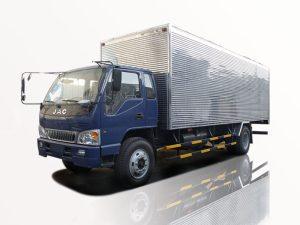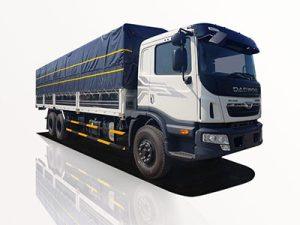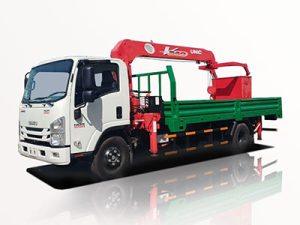Monday to Saturday - 8:00 -17:30
What is a Lorry Truck? Understanding the Basics and Beyond
Introduction
A lorry truck, often simply referred to as a lorry in many countries, is a vital vehicle in the transportation and logistics industry. With a history dating back over a century, lorry trucks have evolved from simple vehicular designs to complex machines equipped with cutting-edge technology. This article will explore what a lorry truck is, its various types, its applications in different industries, and much more. Whether you’re a student, a curious mind, or someone looking to enter the logistics field, this comprehensive guide will provide you with an in-depth understanding of lorry trucks.
What is a Lorry Truck?
A lorry truck is a motor vehicle designed primarily for transporting goods and materials from one place to another. Unlike passenger vehicles, which are built for people, lorry trucks come in various sizes and configurations to accommodate different cargo types, including bulk materials, heavy equipment, and even perishable goods.
Types of Lorry Trucks
Lorry trucks come in various forms, each designed for specific transport needs. Understanding these types can help you choose the right lorry for your needs.
1. Flatbed Lorry
A flatbed lorry features an open trailer with no sides or top, making it suitable for transporting large or heavy items that are not sensitive to weather conditions.
2. Box Lorry
This type has a fully enclosed cargo area, protecting goods from the elements. Box lorries are widely used for transporting furniture, appliances, and other goods that require protection.
3. Tipper Lorry
Tipper lorries can unload their cargo by tilting the truck bed. They are commonly used in construction for transporting loose materials like sand, gravel, or demolition waste.
4. Refrigerated Lorry
Also known as reefers, refrigerated lorries maintain a specific temperature to transport perishable goods like food and pharmaceuticals safely.
5. Container Lorry
These lorries are designed to carry large shipping containers and are essential in the global supply chain. They can be equipped with hydraulic systems for easy loading and unloading.
Components of a Lorry Truck
Understanding the basic components of a lorry truck is essential for grasping how they function. Each part plays a crucial role in ensuring the truck operates efficiently and safely.
| Component | Description |
|---|---|
| Chassis | The truck’s frame, which supports the vehicle and its cargo. |
| Engine | The heart of the lorry, providing the necessary power to move. |
| Cab | The part where the driver sits, controlling the vehicle. |
| Axles | These connect the wheels and enable the truck to bear heavy loads. |
| Wheels | Critical for mobility, providing traction on various surfaces. |
| Cargo Area | The designated space for carrying goods, designed according to the type of lorry. |
How Lorry Trucks Operate
The operation of a lorry truck involves several key processes, from loading and transportation to unloading. Understanding these processes can help enhance safety and efficiency.
Loading and Unloading
Loading involves placing goods onto the truck securely, often using forklifts or pallet jacks. Similarly, unloading may involve hydraulic lifts or other equipment to facilitate the process, especially for heavy loads.
Driving Strategies
When driving a lorry, it’s essential to employ effective strategies, such as maintaining a safe distance from other vehicles and adhering to speed limits. Moreover, drivers should be well-versed in the vehicle’s dimensions to navigate tight spaces effectively.
Applications of Lorry Trucks in Different Industries
Lorry trucks serve critical roles across various sectors. Here’s how they are used in different industries:
1. Construction Industry
In construction, tipper lorries transport raw materials like sand, cement, and gravel. Flatbed lorries also deliver heavy machinery and equipment.
2. Food and Beverage Industry
Refrigerated lorries are utilized to ensure perishables reach their destination safely. This includes transporting fruits, vegetables, meat, and dairy products under controlled temperatures.
3. Retail and E-commerce
Box lorries are commonly used for delivering furniture, technology products, and even clothing, ensuring that items arrive undamaged and on time.
4. Agriculture
Lorries transport agricultural products from farms to markets, which is critical for maintaining the supply chain of fresh produce.
Choosing the Right Lorry Truck
Selecting the right lorry truck for specific needs is crucial for efficiency and safety. Here are some factors to consider:
Cargo Type
The type of cargo you need to transport significantly influences your choice. For instance, if you need to haul bulk materials, a tipper lorry would be ideal, whereas perishable goods would require a refrigerated truck.
Load Capacity
It’s vital to choose a lorry with an appropriate load capacity. Overloading can lead to accidents and equipment damage. Always check the manufacturer’s specifications.
Operating Environment
Considering the terrain in which the lorry will operate is important. Some lorries are designed for rough terrains while others are meant for highways.
Maintenance and Safety Considerations
Regular maintenance is essential for keeping lorry trucks in optimal condition, enhancing safety and performance.
Routine Maintenance
Routine checks should include engine oil levels, tire pressure, brake systems, and lighting. Regular maintenance helps prevent breakdowns and accidents.
Safety Protocols
Employing safety measures, such as wearing seatbelts, adhering to traffic rules, and conducting pre-trip inspections, can significantly reduce accidents.
Environmental Impact of Lorry Trucks
The environmental impact of lorry trucks is an increasingly important topic in today’s world. Understanding this impact can help individuals and organizations make more informed decisions when choosing transportation methods.
Fuel Efficiency
Improving fuel efficiency is vital for reducing greenhouse gas emissions. New advancements like alternative fuels and electric lorries aim to address environmental concerns.
Regulation Compliance
Many regions have established regulations focused on emissions standards. Compliance with these regulations is essential for maintaining a sustainable logistics practice.
Future Trends in Lorry Truck Technology
Advancements in lorry truck technology are setting the stage for a new era in transportation. Here are some notable trends to watch.
Electric and Hybrid Trucks
As the world becomes more conscientious about environmental issues, electric and hybrid lorries are on the rise. These vehicles promise reduced emissions and operational costs.
Autonomous Driving
The future of logistics may include fully autonomous lorry trucks. This technology aims to enhance safety, reduce labor costs, and improve efficiency in deliveries.
Practical Tips for Truck Drivers
Whether you’re a new driver or an experienced one, some practical tips can help improve your driving and overall performance.
Plan Your Routes
Use GPS and routing software to plan the most efficient routes, taking into account traffic patterns and road conditions.
Stay Updated on Regulations
Keep abreast of local and national traffic regulations. Understanding these rules can prevent legal issues and ensure safer driving.
Continuous Training
Engaging in continuous education and training programs can help drivers enhance their skills and stay updated on the latest technologies and safety standards.
FAQ Section
1. What is the difference between a lorry and a truck?
The terms “lorry” and “truck” are often used interchangeably, though “lorry” is more commonly used in British English, whereas “truck” is used in American English.
2. How do I choose the right lorry for my business?
Consider factors such as load capacity, cargo type, and operating environment when selecting a lorry for your business needs.
3. What is the average lifespan of a lorry truck?
The average lifespan varies, but most lorry trucks can last between 10 to 15 years or longer with proper maintenance.
4. Is it necessary to have a special license to drive a lorry truck?
Yes, most countries require a commercial driver’s license (CDL) to operate a lorry truck, and regulations may vary by state or region.
5. Are electric lorries a viable option for businesses?
Electric lorries are becoming more viable due to advancements in battery technology and government incentives, making them a sustainable choice for many businesses.
6. What are some common safety features in modern lorry trucks?
Common safety features include anti-lock braking systems (ABS), electronic stability control (ESC), lane departure warnings, and collision prevention systems.


